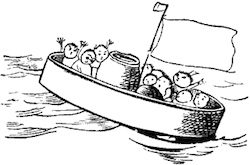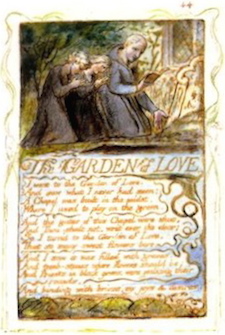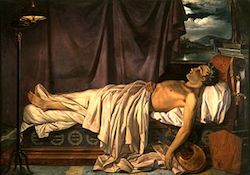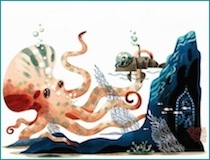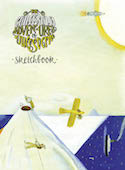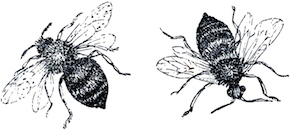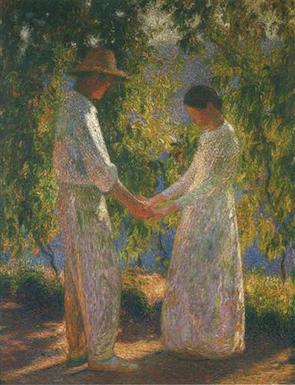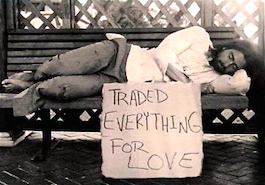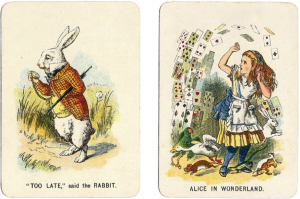
Alice has a pastime with a funny name:
ASTOUNDISTAN
(where cards are more than just a game!)
Start
Catch the Rabbit, if you can:
his watch will set the pace.
Welcome to Astoundistan:
a very curious place!
Level 1: Off you run
Dive into the rabbit-hole:
down and down you fall…
Jars of jam are all around
but don’t you eat it all.
Watch out, here comes the ground –
Level 2: Feeling blue?
Swimming in your own salt tears
you meet a talking Mouse – how queer!
But do be careful what you say
for mice are quick to run away
if they think cats or dogs are near.
Level 3: It won’t dry me!
What do you do when you’re soaking wet?
Dry anecdotes just make you yawn.
The Dodo’s plan will work, I bet:
‘Fast as you can, just run and run,
And soon the dampness will be gone!’
Level 4: You can’t get out the door
Everything you eat or drink
seems to make you grow or shrink.
You come when the White Rabbit calls,
but when you try a little sip,
you end up stuck between four walls.
Level 5: Not the right size
You try to make it clear, but can’t:
he simply will not understand,
that weirdo with his water pipe.
He finally tells you: take a bite –
but from the left side or the right?
Level 6: Baby plays tricks
Too much pepper spoils the soup.
Plates are skimming through the air.
Baby howls – it’s hard to bear.
Dodge the dishes, small and big,
till Baby turns into a pig.
Level 7: Tea forever
Hear the words the Dormouse snores:
‘Alas, the Hatter and the Hare
have been here since last March – such bores!
One of them sips while the other pours.
You’d be better off elsewhere…’
Level 8: The Queen of Hate?
When the Queen says Play, you must obey.
Don’t know the rules? Here’s how the thing goes.
You whack at hedgehogs with flamingos
and if you disobey her rules:
off with your heads, you silly fools!
Level 9: Lesson time
The Turtle says, ‘Back then, I was not mock.
Yes, everything was real. Even this rock.
And in our aquacademy,
we studied eelgebra, seaometry,
fishtory, angling, decompression;
a little less in every lesson.’
Level 10: Change lobsters again!
Want a thrill? Try the Lobster Quadrille!
Bow and somersault, swim and sway,
throw your partner into the waves,
one, two, one, two,
fish him out and start anew!
Level 11: Shooting up to heaven
The Knave of Hearts, they say, has taken their pies away.
First the White Rabbit reads the charges
and after that the witnesses argue.
As everyone starts to holler
you can feel yourself grow taller…
Never fear, the end is near
Why so worried? Relax, have fun!
They’re only playing cards, every one.
No need for their nonsense anymore!
Just slide them back into their pack
and check the Rabbit’s watch for your score.
Tip
Alice has another pastime with a funny name:
it’s called Mirroria (where chess is more than just a game!).
Judy Elfferich | © vertaling: David McKay
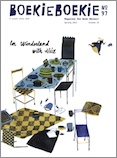
Gepubliceerd in BoekieBoekie 97 (English version):
‘In Wonderland with Alice’.
Nederlandse versie: Verbazistan.
Met dank aan David McKay (klik) voor zijn toestemming om de vertaling hier te posten.


